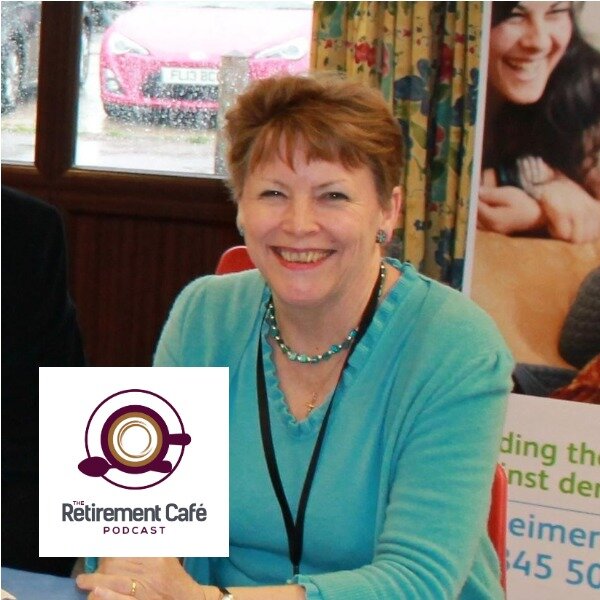My experience of caring for people with dementia
Mary Jordan’s mother-in-law was suffering from dementia. But because she wouldn’t visit the doctor, Mary resorted to reading books in the public library to try and self-diagnose the condition.
This early experience of dementia led Mary into a life-long career, involving a period of time working for Alzheimer’s Society as a Dementia Support Worker and then qualifying to deliver the Alzheimer’s Society CrisP programme. As a Dementia Support Worker Mary got to know somebody with dementia and stayed with them for their whole journey. From when they were diagnosed until they died.
Mary has written a number of books about caring and dementia, including ‘The Essential Carer’s Guide’ – which she wrote after caring for her mother-in-law, ‘The Essential Guide to Avoiding Dementia’, and The Essential Carer’s Guide to Dementia, culminating in the most recent book co-authored with Dr Noel Collins, The D Word: Re-thinking Dementia.
Making society part of the solution
Mary believes that dementia wouldn’t be so difficult if society dealt with it better.
We tend to distance people with dementia, out of fear or a lack of knowledge of how to deal with people. Society tends to say … oh dear, you’ve got dementia, let’s ignore you more or less. Let’s put you away somewhere and just try not to think about it too much because you’re cuckoo. That’s how society acts.
Mary felt that if people were made to feel a continued part of society and the society was more gentle towards them, that people with dementia could live a happier life.
Many people describe a dementia diagnosis as a fate worse than death. That’s how people see it. What Noel and Mary were trying to convey is that it’s not. That you still continue to live, you’re still yourself and if society were gentler towards you, you’d be able to function and continue in society and have an enjoyable life.
Mary would like to see a lot of practical changes in things like street signage that would make it easier for people with dementia to get about and understand where they are. And she’d like to see a change in things like clubs. Mary issues a challenge in the book to rotary clubs, WIs, anything like that for those running the clubs to accept people with dementia.
AdaptDementia
Mary co-founded AdaptDementia after recognising that the Alzheimer’s Society have moved more into the research area and have dropped a lot of their hands-on services to people.
Mary wanted to be helping people now. Research is very important, but Mary wanted to help people who were dealing with dementia now. So she founded her own company to do this hands-on helping.
Cognitive Stimulation Therapy
Mary offers cognitive stimulation courses for people with dementia. Cognitive stimulation therapy is the only therapy recommended by NICE for dementia. It’s not a drug, it’s a group therapy and it’s in short supply because there just aren’t enough people to deliver it.
It involves people in small groups, about 10 people, which enables people to talk and relax and feel themselves. Each activity they do is designed to stimulate a different area of the brain. So it’s a very specific therapy.
In some areas it is available via the national health service and social services, but Mary’s organisation delivers it privately.
People need people
Mary believes that what people with dementia need most is another person. It’s very difficult for them to live on their own and even with technological help, it would be very difficult for them. They need somebody to show them how to work the technology. So it’s really about socialising. It’s about people needing people.
Accept support to manage for longer
Very few people want to accept support when a diagnosis is received. Everyone wants to manage. They don’t want to bother people.
Initially, you may be able to manage, but dementia is a progressive disease and what’s happening now is not what’s going to happen later. Mary would say to people to accept support, any support that’s offered to you.
You can listen to Mary’s interview on The Retirement Café Podcast from 21st May 2019.


